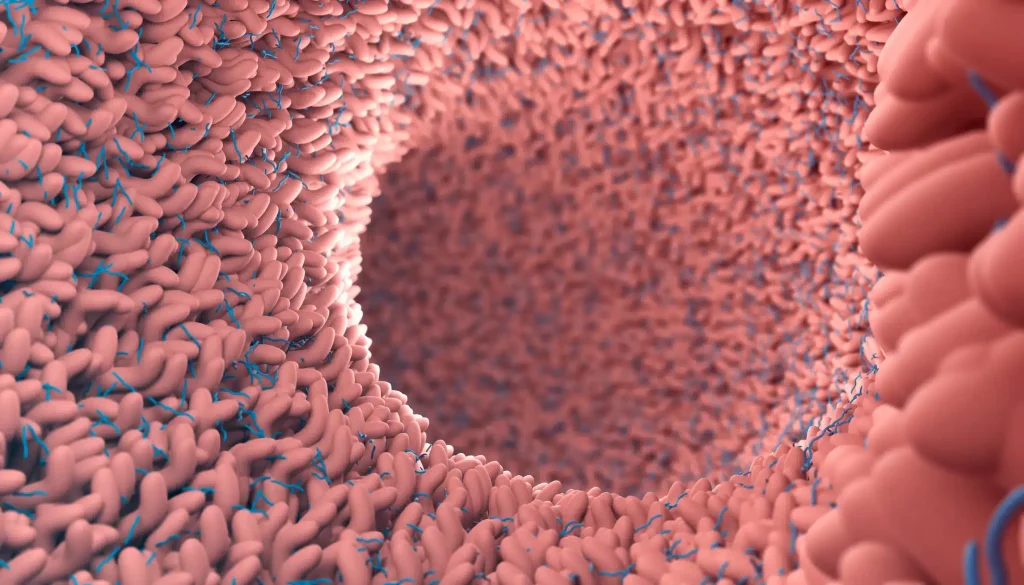Understanding the Causes of Chronic Diarrhea
Understanding the Causes of Chronic Diarrhea: Identifying the root cause is crucial for effective treatment. A variety of underlying health conditions can cause chronic diarrhea. Here are some common causes:
- Infections: Persistent infections from bacteria, viruses, or parasites can lead to chronic diarrhea. Examples include Clostridium difficile (C. diff) and Giardia.
- Inflammatory Bowel Disease (IBD): Conditions such as Crohn’s disease and ulcerative colitis cause chronic digestive tract inflammation, leading to diarrhea.
- Irritable Bowel Syndrome (IBS): A common disorder affecting the large intestine, IBS can cause chronic diarrhea, particularly in its IBS-D (diarrhea-predominant) form.
- Celiac Disease: An autoimmune disorder where ingestion of gluten damages the small intestine, resulting in diarrhea.
- Medications: Long-term use of certain medications, including antibiotics, can disrupt gut flora and cause diarrhea.
- Malabsorption Disorders: Conditions like lactose intolerance or pancreatic insufficiency where the body cannot properly absorb certain nutrients, leading to diarrhea.
- Endocrine Disorders: Conditions like hyperthyroidism can accelerate digestion, resulting in chronic diarrhea.
Effective Treatment Options for Chronic Diarrhea
Treating chronic diarrhea involves addressing the underlying cause and managing symptoms. Here are some effective treatment options:
- Medications: Depending on the cause, different medications can be used. Antibiotics may be prescribed for bacterial infections, while anti-inflammatory drugs can help manage IBD.
- Probiotics: A key player in restoring the natural balance of bacteria in the gut, particularly after antibiotic use.
- Dietary Changes: It is crucial to identify and eliminate trigger foods. For example, people with celiac disease must follow a strict gluten-free diet.
- Hydration: A vital aspect in preventing dehydration, a common risk associated with chronic diarrhea.
- Fiber Supplements: Soluble fiber can help bulk up stools and reduce diarrhea.
- Stress Management: Techniques such as mindfulness, yoga, and cognitive-behavioral therapy (CBT) can help manage stress-related diarrhea, particularly in IBS.
Managing Long-Term Diarrhea: Tips for Daily Life
Living with chronic diarrhea requires proactive management to minimize its impact on daily life. Here are some tips:
- Keep a Food Diary: Track what you eat and any following symptoms to identify and avoid trigger foods.
- Stay Hydrated: To prevent dehydration, drink plenty of fluids, especially water and oral rehydration solutions.
- Plan Ahead: When leaving home, know where restrooms are and carry supplies like wet wipes and extra clothing.
- Regular Exercise: Engage in moderate physical activity to help regulate digestion and reduce stress.
- Small, Frequent Meals: Eating smaller meals more frequently can be easier on the digestive system than larger, less frequent meals.
- Medication Adherence: Follow your healthcare provider’s medication use recommendations to control symptoms.
Symptoms and Solutions for Persistent Diarrhea
Persistent diarrhea can present with various symptoms that affect overall health. Here are some common symptoms and their solutions:
- Abdominal Pain and Cramps: Over-the-counter pain relievers like acetaminophen can help, but it’s important to avoid NSAIDs like ibuprofen, which can irritate the stomach.
- Bloating and Gas: Reducing the intake of gas-producing foods like beans, cabbage, and carbonated drinks can alleviate symptoms.
- Fatigue: Ensure adequate rest and consider supplements like B vitamins and iron if blood tests indicate deficiencies.
- Weight Loss: Work with a nutritionist to ensure you get adequate nutrients and calories despite diarrhea.
Improving Quality of Life with Chronic Digestive Issues
Chronic diarrhea can take a toll on both physical and mental health. Here are some strategies to improve your quality of life:
- Seek Support: Join support groups or talk to a therapist to manage the emotional impact of living with chronic diarrhea.
- Educate Yourself: Stay informed about your condition and treatment options to manage your health better.
- Communicate with Healthcare Providers: Maintain open communication with your doctors to adjust treatments as needed and address any new symptoms promptly.
- Balanced Diet: Work with a dietitian to create a balanced diet that supports your digestive health without triggering symptoms.
- Routine Check-ups: Regular medical check-ups can help monitor your condition and catch any complications early.
What Causes Chronic Diarrhea and How Can It Be Treated?
Various factors, including infections, inflammatory conditions, food intolerances, medications, and more, cause chronic diarrhea. Treatment depends on the underlying cause but generally includes medications, dietary adjustments, probiotics, and hydration. Consulting with a healthcare provider for a proper diagnosis and tailored treatment plan is essential.
How Can I Manage Chronic Diarrhea and Improve My Quality of Life?
Managing chronic diarrhea involves a combination of medical treatments and lifestyle changes. Key strategies include staying hydrated, maintaining a balanced diet, managing stress, and planning outings. Support from healthcare providers, support groups, and mental health professionals can also play a vital role in improving quality of life.
What Are the Symptoms of Long-Term Digestive Issues?
Symptoms of long-term digestive issues include persistent diarrhea, abdominal pain, bloating, gas, fatigue, and unintentional weight loss. These symptoms can vary in severity and may be constant or intermittent. Recognizing these symptoms early can help in seeking appropriate medical care.
What Are the Best Treatments for Persistent Diarrhea?
The best treatments for persistent diarrhea are tailored to the underlying cause. Common treatments include antibiotics for infections, anti-inflammatory drugs for IBD, dietary adjustments for food intolerances, and probiotics to restore gut health. Hydration and fiber supplements can also help manage symptoms.
How Do I Cope with the Impact of Chronic Diarrhea on Daily Life?
Coping with chronic diarrhea involves practical steps like keeping a food diary, planning for restroom access, staying hydrated, and managing stress. Emotional support from therapy or support groups can also be beneficial. Adapting daily routines to accommodate the condition and seeking ongoing medical advice can significantly improve day-to-day life.
What Lifestyle Changes Help Manage Chronic Diarrhea Effectively?
Effective lifestyle changes for managing chronic diarrhea include eating a balanced diet, staying hydrated, exercising regularly, managing stress, and avoiding trigger foods. Communication with healthcare providers and staying informed about the condition are also crucial for effective management.
Conclusion
Chronic diarrhea is a challenging condition that requires a multifaceted approach to management. Individuals can improve their quality of life by understanding the causes, recognizing symptoms, and implementing effective treatments and lifestyle changes. Regular medical consultations and emotional support are essential to effectively managing this condition.
Visit our resources for more articles.




